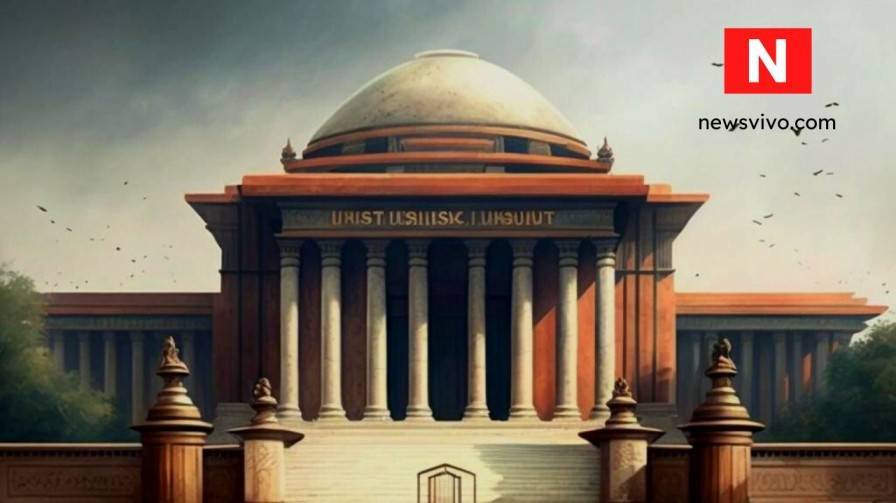
Supreme Court
The change of guard at the Chief Justice of India’s (CJI) office on November 9 appears to have prompted a rethinking of the Union government’s approach to the Supreme Court. Despite his role in the 2019 Ayodhya-Babri Masjid case judgement, which handed the Bharatiya Janata Party its biggest legal and political victory, Justice D.Y. Chandrachud, the new CJI, has a reputation as a liberal judge with a strong and independent voice.
Kiren Rijiju, the Union Minister of Law and Justice, appears to have discovered his voice in time for the appointment of the new Chief Justice of India. In recent weeks, he has demonstrated a keen sense of urgency in his efforts to correct the democratic deficit that has plagued the process of appointment to the higher judiciary for three decades.
In the meantime, the Supreme Court has taken up the issue of the Union government’s failure to notify collegium recommendations, which is a flagrant violation of the law established by the court in two cases in the 1990s. After the Bench expressed its displeasure with some of Mr. Rijiju’s comments about the appointments, news broke on Monday that the Union government had returned 19 recommendations to the collegium hours before the proceedings.
The Supreme Court remains steadfastly committed to the collegium system of appointing judges, with little regard for criticism from both within and outside the legal community. In interviews with the media following his retirement, Justice U.U. Lalit described the collegium as the “perfect” system for protecting the independence of the judiciary. Given such statements, it is difficult to imagine the court’s position changing quickly.
These improvements must be viewed not only as attempts to reform a flawed appointment system, but also as a strategy by the government to maintain the informal veto it has usurped in recent times by delaying or forcing changes to collegium recommendations. This strategy anticipates a reversal in the Union government’s cosy relationship with previous Chief Justices.
In 2015, a Supreme Court Constitution Bench overturned Parliament’s constitutional amendments establishing the National Judicial Appointments Commission (NJAC). The central argument of the court was that by removing the judiciary’s primacy in the new appointment process, the NJAC undermined the judiciary’s independence, which was a key component of the court’s understanding of the Constitution and bill of rights basic configuration.
Notwithstanding, the Union government argued before the Bench, through Attorney General Mukul Rohatgi, that the right and power to frame the MoP was squarely in its domain, citing the court’s decisions that established the collegium system. The court accepted this position and closed the proceedings, giving the Union government broad guidelines on what the MoP should focus on during the process, including eligibility, transparency, the formation of a secretariat, and complaint redressal. Nobody knows what happened to the 11,500 pages of suggestions received by the committee. According to media reports, the court and the government were unable to reach an agreement on these MoP reforms. As a result, the process was placed in refrigerated conditions.
Meanwhile, the government’s reaction to the NJAC’s demise was inaction — it began to stall appointments. While Mr. Rijiju took exception last week to the court’s criticism that the government was sitting on recommendations, the government did exactly that. It was vehemently opposed to names it did not like and even ignored collegium reiterations, which are legally binding on the government. In 2018, Justice K.M. Joseph’s case was significant. When he was finally appointed, he lost the seniority he would have received with the original recommendation because the government split the names for appointments.
In contrast hand, the Union government made no attempt to resurrect the NJAC through Parliament by filling the gaps identified by the Supreme Court in its 2015 decision.
The recent CJIs’ tendency not to agitate the government over these omissions, despite the negative consequences for the institution, aided the maintenance of a delicate calm in the court-government relationship. The change of guard at the CJI’s office appears to have sparked a storm that threatens to disrupt the tranquilly.
In so many european states, regimes seeking to consolidate power have first targeted the judiciary. Recently, there have been overt attacks on these institutions in Hungary and Poland. Such attacks have altered the powers and composition of these institutions, transforming them into courts supportive of the executive’s policies. The process of appointing members of the higher judiciary remains a hotly contested one. Frontal attacks on the process are indicators of democratic backsliding.
In India, the court has attempted to obstruct this process, albeit through the flawed collegium system. The process, which began with a heavily criticised reinterpretation of the Constitution’s appointment provisions, fails to meet basic transparency and accountability requirements and remains vulnerable to allegations of nepotism. In addition, there is a significant lack of social diversity in the consultations.
Moreover, Mr. Rijiju’s remarks are laying the groundwork for a new normal, which could eventually lead to the court’s delegitimization. It begs the question: can judges appointed through an opaque, democratically deficient process deliver judgements that can be legitimately accepted in a democracy? Coming from a government seeking control over judicial appointments, this is a risky path to take.
The solution to this problem would be for the court to voluntarily undertake collegium reforms and expedite the creation of a new MoP that incorporates the legitimate concerns of the government and stakeholders at large. This is the only way to make the attacks less painful.